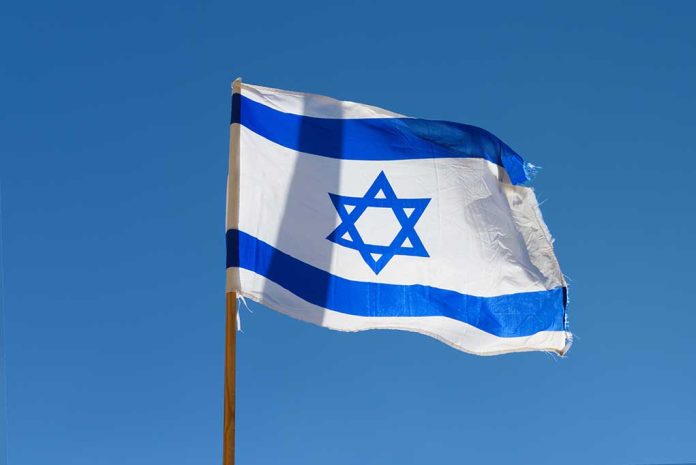
The latest Israeli airstrikes on Nabatieh have intensified tensions and raised concerns about a growing humanitarian crisis.
At a Glance
- Israeli airstrikes in Nabatieh killed Lebanese Mayor Ahmad Kahil and five others
- The strikes targeted Hezbollah strongholds, causing widespread destruction
- Lebanese leaders, including Prime Minister Najib Mikati, condemned the attacks
- International calls for peace and diplomatic resolution are escalating
Intensified Israeli Military Actions
The recent Israeli airstrikes targeted the town of Nabatieh in southern Lebanon, killing six, including the city’s mayor, Ahmad Kahil. Israel reportedly aimed at Hezbollah’s hidden weapon caches, resulting in extensive destruction and death. These strikes mark one of the most significant escalations on Lebanese soil in recent years, exacerbating regional instability.
The Lebanese government expressed outrage, noting the strike specifically targeted a municipal council meeting. Prime Minister Najib Mikati said the attack “deliberately targeted a meeting of the municipal council that was discussing the city’s services and relief situation”. Civilian casualties and the destruction of critical infrastructure have left many residents in desperate need of assistance.
Strategic and Humanitarian Impact
The strikes in Nabatieh were part of a broader military operation by Israel against Hezbollah strongholds. With Hezbollah’s increased low-intensity strikes on Israel, the IDF has justified expanded operations to maintain regional security. However, this comes at a steep price for civilians, compounding a humanitarian situation that is already critical.
Lebanese leadership, alongside international organizations like the UN, have voiced concerns over the targeting of civilian areas and the worsening crisis on the ground. With over 2,300 people reported killed in Lebanon, including civilians and combatants, the death toll likely underestimates the comprehensive loss of life.
Diplomatic Repercussions and International Response
The incident has drawn widespread international condemnation. The US, EU, and other global entities have cautioned against further military escalation and urged Israeli restraint to prevent further humanitarian deterioration. UN Special Coordinator for Lebanon, Jeanine Hennis-Plasschaert, highlighted the increased targeting of civilians and infrastructure across Lebanon.
The consequences of these strikes reverberate beyond immediate casualties. Economic strains, displacement, and heightened risk of famine and health issues are real concerns for affected populations. Amid these challenges, calls for dialogue and peaceful conflict resolution resonate louder among global powers.
Israeli strikes reportedly killed the mayor of Nabatiyeh in southern Lebanon, along with several others, after hitting a municipal building.
A Lebanese official said Israel carried out 11 airstrikes, days after strikes destroyed Nabatiyeh's marketplace: https://t.co/KqC8AVxnWe pic.twitter.com/ZikN5HmglD
— DW News (@dwnews) October 16, 2024
Future Outlook and Regional Stability
While the airstrikes targeted Hezbollah’s presumed weapon storages, questions about the accuracy of intelligence and collateral damage persist. Hezbollah’s ongoing retaliation following the strikes only deepens the cycle of violence, as tensions with nations like Iran add additional layers of complexity to the conflict.
The international community remains vigilant, calling for de-escalation and reconciliation efforts to address both immediate humanitarian needs and long-term peace initiatives. As Lebanon navigates these turbulent times, it is critical for diplomatic channels to remain open to prevent further destabilization of the region.








